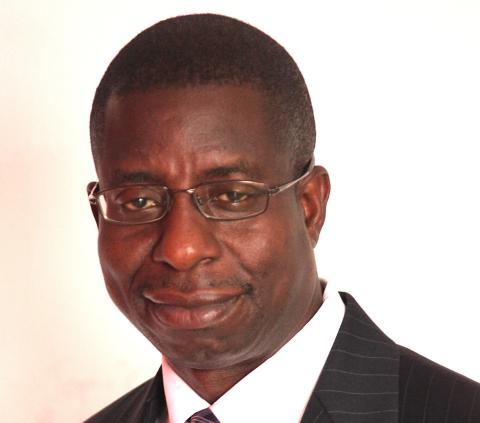
From bad to worse, the Supreme Court has now hammered home the last nail on the coffin of free, fair and credible elections.
The spate of surprisingly unanimous yet lamentable 2015 governorship election petition decisions handed down by the Justice Mahmud Mohammed-led Supreme Court has made the case for genuine and lasting electoral reform a matter of national urgency, bordering on an emergency. The urgency has always been there since the Verdict ’83 fiasco supervised by the defunct Federal Electoral Commission (FEDECO). Yet, so scandalous was the extent of the rigging and total discrediting of the 2007 elections that the late President Ya’Adua was embarrassed by the taint on his electoral mandate and set up the Justice Mohammed Uwais Electoral Reform Committee. Its terms of reference point to the arching need for sweeping reforms: to undertake a review of Nigeria’s history with general elections and identify factors which affect the quality and credibility of the elections and their impact on the democratic process; to examine relevant provisions of the 1999 Constitution, the Electoral Act and other legislation that have bearing on the electoral process and assess their impact on the quality and credibility of general elections; and to examine the roles of institutions, agencies and stakeholders in shaping and impacting on the quality and credibility of the electoral process, including government, electoral commissions, security agencies, political parties, non-governmental organisations, the media, the general public and the international community.

The phrase “quality and credibility of the elections” recurs in all three terms of reference. The Uwais committee duly delivered a catalogue of reforms aimed at instilling sanity in our politics. Its report has achieved canonical status for the weak-kneed and self-interested refusal of former president Jonathan to implement it in full. Jonathan rejected the recommendation aimed at assuring the independence of the Independent Electoral Commission through the appointment of its chairman and national commissioners upon the recommendation of the National Judicial Institute and confirmation by the Senate. He also scorned the recommendation for the creation of three new bodies from INEC — an Electoral Offences Commission, a Political Parties and Registration Regulatory Commission, and a Constituency Delimitation Commission — aimed at relieving INEC of, and insulating it from, its more burdensome and contentious duties.
From bad to worse, the Supreme Court has now hammered home the last nail on the coffin of free, fair and credible elections. It will remain a matter of speculation why the court has been so eager to depart from the commonsense, democracy-affirming, principle in the 1974 English case of Morgan v Simpson, which was followed for a while: sheer intellectual laziness (how else to put it?) or a crippling inability to resist the siren call of technicalities and do substantial justice? As it is, from the laudable principle which says that “If the election was conducted so badly that it was not substantially in accordance with the law as to elections, the election is vitiated, irrespective of whether the result was affected, or not,” the court stipulates the exact opposite: non-compliance (rigging, violence, ballot box-snatching and stuffing, etc) must not only be proved beyond every iota of doubt by the petitioner but, also, to have affected the result. And the petitioner must tender evidence from every ward and polling booth. Imagine the task before a petitioner, especially an aggrieved governorship or presidential election candidate! Effectively, elections are no longer civil cases decided on a balance of probability, with he who asserts the affirmative position having the burden of discharging the onus of proof once prima facie evidence of the negative, that is non-compliance, has been given. A petitioner is now saddled with an unconscionable, impossible to meet, standard of proof, even higher than required in a criminal case. Victory is assured, ab initio, for incorrigible riggers and exponents of the doctrine of elections as warfare. They can soak every ballot in blood, harass and intimidate opponents, electoral officers and security agents to emerge the “winners” and mock their vanquished competitors by saying to them, “Go to court!” All in the knowledge that they stand to profit handsomely from their own wrongs.
And then there is the matter of the court’s astonishing interpretation of the role of biometrically-encoded permanent voter’s cards and smart card readers in pre-voting accreditation. Without first determining that INEC lacked the power to make them complementary to the voters register and integral to the electoral process, the Supreme Court unanimously adopted the view that a smart card reader somehow violates the electoral law by “dethroning” or “deposing” the register. It is as if the learned justices of the Supreme Court are confirmed Luddites, implacable enemies of technology, and only manual voter verification, no matter its widely acknowledged propensity to perpetuate widespread voter impersonation and vote inflation, would do for them!
It would be a benevolence if the Supreme Court could, suo moto, reverse itself and return to the unimpeachable principle of Morgan v Simpson. Alas, that is procedurally impossible. Yet, we cannot wait for the uncertain day in the future when a petition presents the opportunity to correct the grievous error (if the justices even acknowledges their error). Only urgent legislative action can save the country from the incalculable harm of judicial sanctification for electoral brigandage. If anyone knows the cost of rigged elections, it is President Buhari. He, like his predecessor Yar’Adua, must make electoral reform an urgent national issue that must be tackled NOW and not six months to the next general elections.
You can reach Dr. Ifowodo at [email protected]